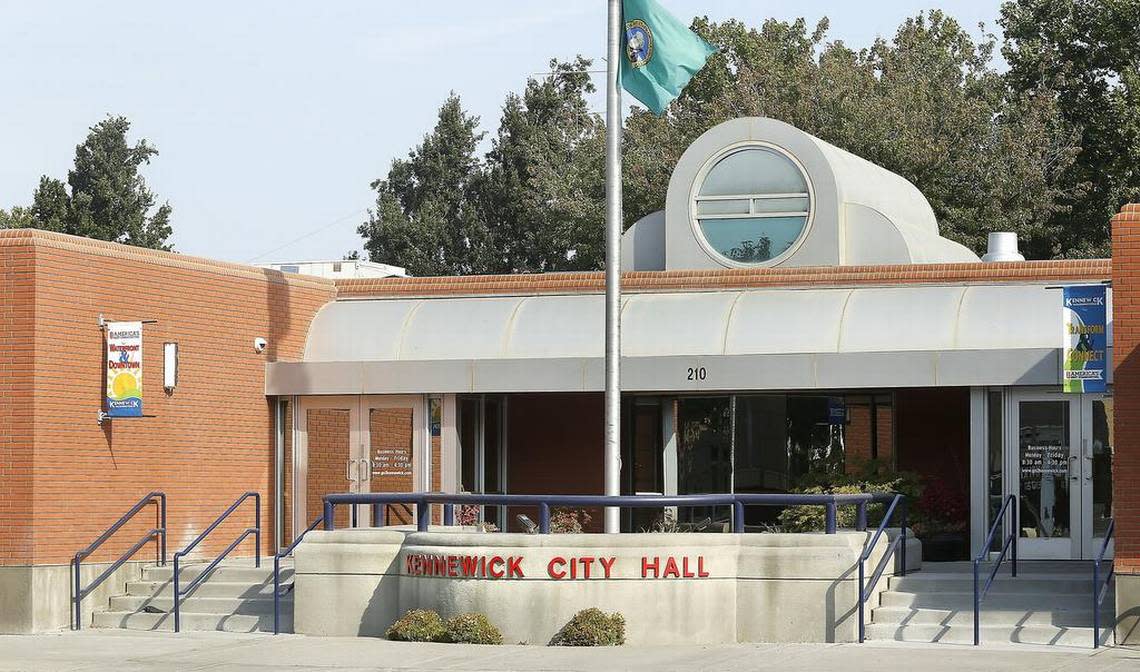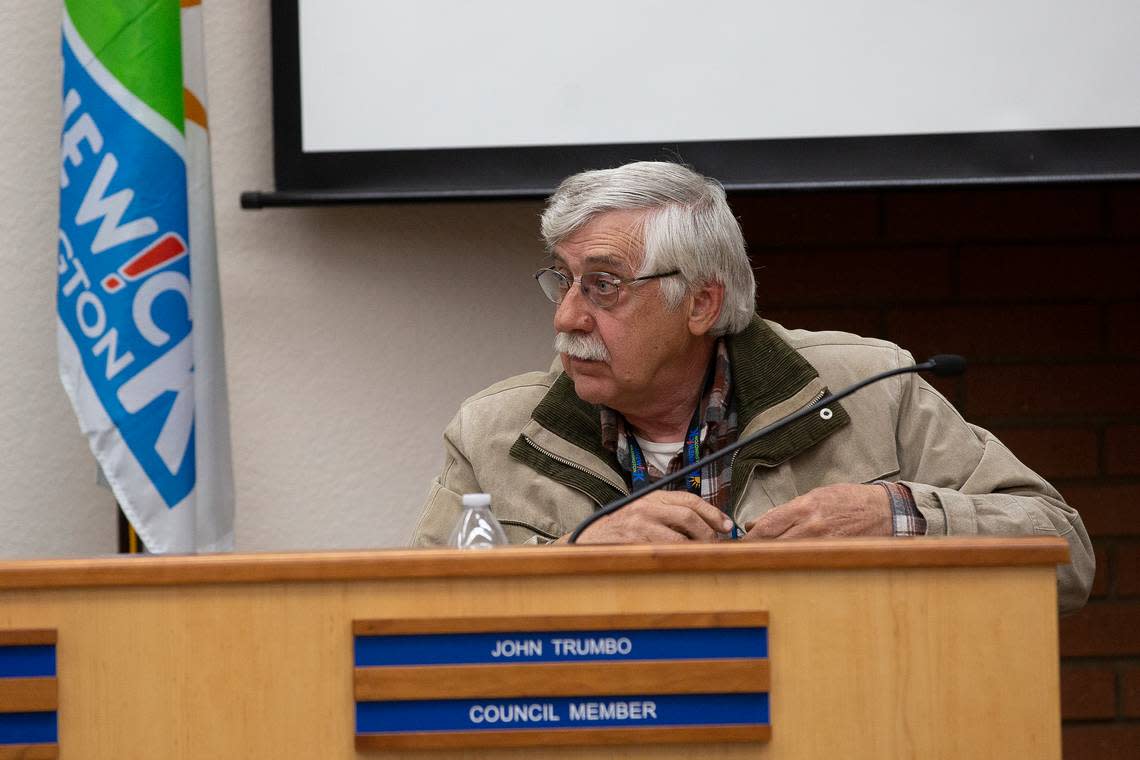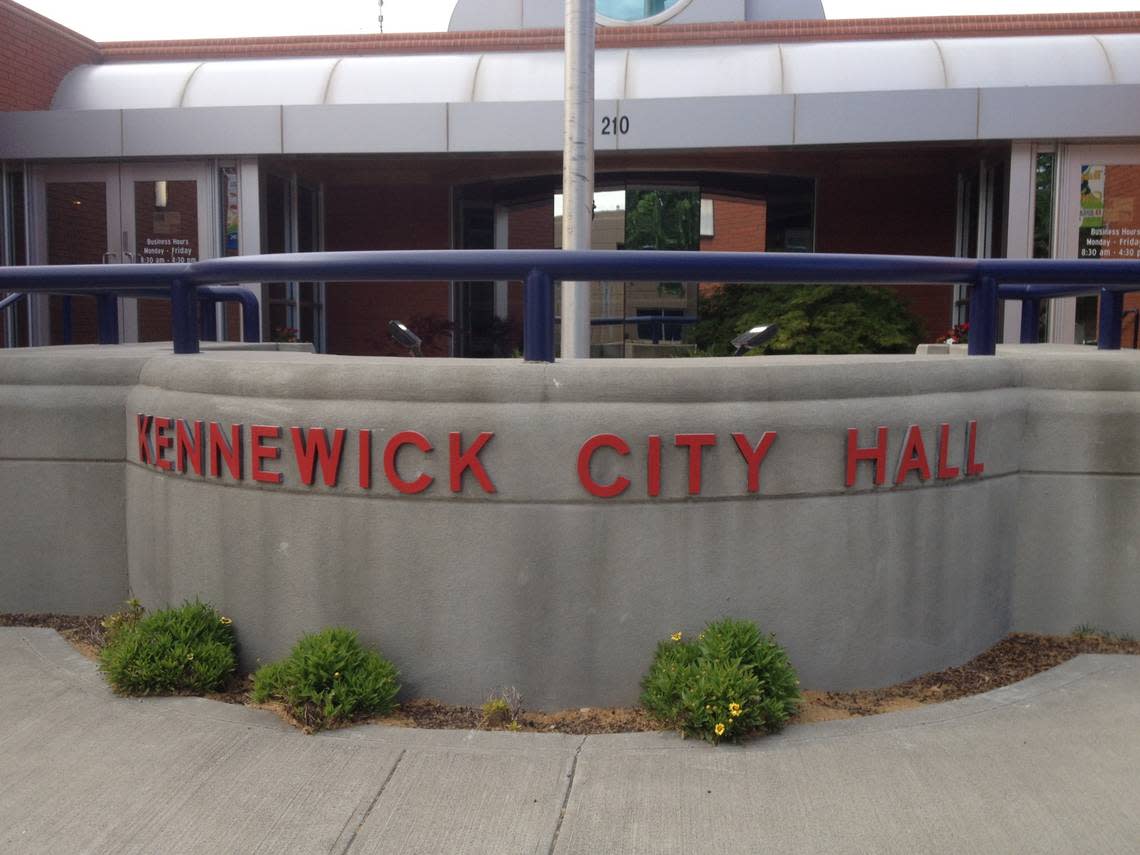Kennewick Council reaches split decision on public prayer. Would it be divisive?
The Kennewick City Council voted 5-2 Tuesday night in favor of starting its meetings with a prayer, after disagreeing on whether that would divide or unite people.
The vote was not the final step in moving forward with a prayer at the start of meetings, but indicated the council’s support of prayer and directs city staff to draw up a formal policy for its approval.
The renewed push to start council meetings in the Eastern Washington town with a prayer was started by Councilman John Trumbo, after he was unsuccessful eight years ago with a council with different members.
He told the council last month that prayer creates a focus on working together and fosters an attitude of humility and acceptance that “we are all equal and no one is above another.”
It also acknowledges that God is omniscient, he said.
“We have divisiveness in our community and it isn’t because of prayer,” he said. “In fact, prayer could help resolve that divisiveness.”

Councilman Chuck Torelli, supported by Councilman Jim Millbaur, countered Tuesday with a proposal for a moment of silence as a compromise.
The emails to council members, Tri-City Herald letters to the editor and Kennewick residents who spoke about the proposal at a previous public meeting were about 80% opposed to starting meetings with public prayer, Torelli said.
“What is the value of a policy that brings division to a community that we are all here to serve?” he asked.
There could be the perception, or even the reality, that there will be a litmus test of Judeo-Christian orthodoxy applied to residents coming before the council to ask for support, he said.
Prayer vs. silent moment
Having a moment of silence would not be giving up on prayer, but allows people to pray to their god in the way they want, Millbauer said.
But Councilman Brad Beauchamp called a moment of silence “a very big cop out for what we are trying to accomplish.”
A moment of silence is a “poor substitute for prayer,” Trumbo said.

“When we talk about inclusiveness, that includes faith-based groups or non faith-based groups,” said Councilwoman Gretl Crawford. “I think we are lacking hope in a lot of areas of our society, and probably even a lot of areas within our city.”
The dais would be opened to any spiritual group within the community to give the council guidance, she said.
“Comments have been made about being inclusive,” said Councilman Loren Anderson. “Well, that’s except for religious people.”
Without religion, who will teach honesty, gratitude, forgiveness and patience, he asked.
But prayer would not be banned from meetings, Torrelli said. Anyone who wants to offer a prayer would still be free to during the public comment period scheduled at each council meeting, he said.
It is already common for residents to read Bible verses or make other presentations based on Christianity during the public comments.
Trumbo, Beauchamp, Crawford, Anderson and Mayor Bill McKay favored a formal prayer to start meetings, with Torelli and Millbauer opposed.
The council started meetings with prayers from 1976 to 1992, although City Attorney Lisa Beaton said during a July council workshop that she was not immediately able to find information on why the practice stopped.
“Legislative prayer is a part of America,” Beaton said then. “It is part of our history.”
How to add prayer
The council has the right to start meetings with a prayer, but there can be no meddling or directing the content of the prayer or discrimination against who can give prayers, she said.
The invocation is for the benefit of the council, she said.
“It is meant to assist you in your job, in your duty as an elected official,” she said. “The public can witness that, but it is really not for the public.”

The council should not comment on individual prayers or the organization giving the prayer. If council members, staff or audience members choose to leave the room or otherwise not participate in the prayer, there can be no consequences, Beaton said.
She has recommended that if prayer resumes at the start of council meetings, that a list of religious congregations in Kennewick be drawn up and invitations sent out, although organizations not on the invitation list also could volunteer.
There is no need to solicit prayers from certain faiths to achieve diversity, but there cannot be discrimination against anyone wishing to volunteer to give the prayer, she said.
Council members and city staff should not be allowed to routinely lead prayers and they should not invite others to join in the prayer, she said.
There should be limits on the prayers, such as no more than three invocations a year by a congregation and a time limit of a minute or two for the prayer, Beaton said.
